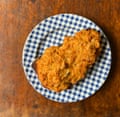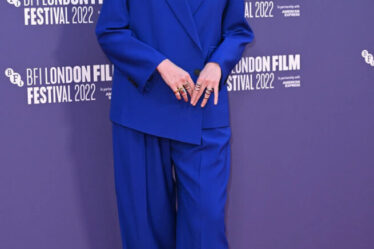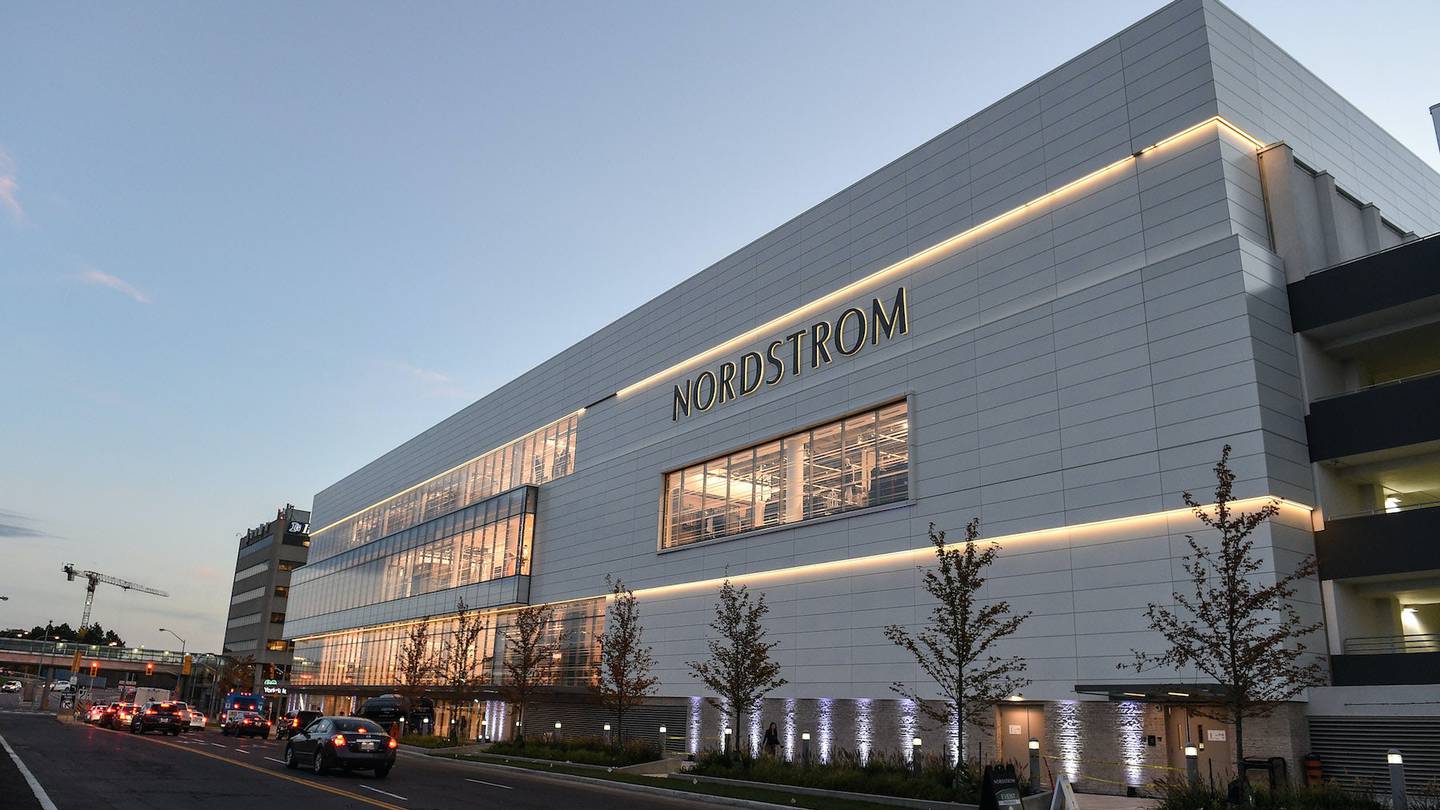
On Tuesday, Kering warned investors its sales were down 10 percent this quarter, mostly due to a 20 percent drop at flagship label Gucci, which accounts for more than half of the French group’s revenues and about two-thirds of its operating profit.
In recent calls and presentations, Kering had prepared markets for another lacklustre year as it works to give its brands a more timeless, upmarket positioning.
But Gucci’s sales performance was far worse than expected: most analysts had forecast revenues would decline by around 4 percent this quarter, with the most pessimistic among them projecting a 10 percent drop. On Wednesday, Kering shares plunged 12 percent in Paris trading, wiping €6.3 billion off the company’s market value.
With sales in free fall, Gucci and Kering face mounting concern about whether the company can execute on a long-awaited turnaround at the Italian megabrand.
Last year, the group replaced both creative director Alessandro Michele and CEO Marco Bizzarri, who had piloted Gucci through a phase of explosive growth leveraging a radical, maximalist image overhaul and a commercial strategy that had leaned heavily into accessibly-priced luxuries like little camera bags, low-top logo sneakers, bucket hats, logo tees and collaborations with sportswear brands like The North Face and Adidas.
After growth sputtered during the pandemic — with consumers flocking to blue-chip luxury brands seen as less likely to go out of style than fashion-driven Gucci — Kering has sought to push the brand in a more stable, upmarket direction.
The group has hired a behind-the-scenes designer from Valentino, Sabato de Sarno, whose first collections for Gucci have aimed to usher in a more dressed up, sexed up notion of glamour that’s in step with how many cool, young women want to dress today.
His early shows have provided a palette cleanser after Michele’s off-kilter aesthetic, which attracted super fans as well as plenty of detractors. But the jury is still out on whether De Sarno’s more subtle, sartorial approach will supply a brand story that’s strong enough to get customers excited about Gucci and into stores.
That the brand’s topline has gone deep in the red is hardly a promising sign. But operational hold-ups and waning interest in Gucci’s former aesthetic are also to blame: six months after his first show, De Sarno’s designs still make up less than 5 percent of the assortment in stores, and only two flagships have been converted to the brand’s new store concept.
Gucci is also trying to reboot itself in a deteriorating climate for high-end brands. US credit card spending on luxury goods declined 15 percent last month, following a 19 percent year-on-year drop in January, according to purchasing data from Citi.
The key Chinese luxury market also remains sluggish as the country navigates slower economic growth and depressed equity and real estate values. Kering’s revenue warning flagged poor performance in the Asia-Pacific region as a key challenge for Gucci.
“Kering’s news raises a lot of questions, mainly, have the Chinese fallen out of love with Gucci? Why, and is it fix-able?” Citi analyst Thomas Chauvet said. While plenty of brands are currently struggling with cooling luxury demand, the severity of Gucci’s slowdown suggests there are specific maladies at play. Indeed, the latest numbers show the rest of Kering’s portfolio is broadly flat, which is a bit better than markets expected, according to Chauvet.
Most analysts agree more time is needed before gauging the success of designer De Sarno and new CEO Jean-François Palus’ efforts. But less than a year into the new team’s tenure, some have begun calling for shakeups to the strategy and team.
“A more drastic solution is required,” RBC analyst Piral Dadhania said, suggesting that the company may need to take more aggressive steps to clear old product (Gucci stopped markdowns in stores in 2016).
A new CEO may also be needed: “Despite Kering’s insistence that Jean-François Palus is the right interim CEO for Gucci, the market does not agree,” Dadhania wrote.
As the longtime managing director of Kering, Palus has managed the group’s fashion holdings from a distance for years. But he is seen as having an insufficient track record in the hands-on business of operating a fashion brand.
Saint Laurent’s chief executive Francesca Bellettini is also helping to oversee the turnaround in her new role as the group’s deputy CEO, but it’s hardly guaranteed that her exacting approach to brand building and distribution can be extended across multiple brands.
For now, Gucci’s gone “out with the old,” but customers are still waiting for the new.
THE NEWS IN BRIEF
FASHION, BUSINESS AND THE ECONOMY
Nordstrom’s founding family in a new bid to take the US retailer private. Nordstrom has asked investment banks Morgan Stanley and Centerview Partners to reach out to private equity firms and gauge their interest for a potential deal. Nordstrom shares rose 12 percent to $19.22 on the news on Tuesday, giving the company a market value of $3.2 billion.
Swiss watch exports slump on lower shipments to China and Hong Kong. Exports dropped 3.8 percent by value in February to 2.15 billion Swiss francs ($2.4 billion) from a year earlier. Shipments of watches priced at over 3,000 francs, which account for about 80 percent of export values, fell by 1.8 percent in February.
Temu-owner PDD jumps 15 percent after revenue beats estimates amid overseas push. The Chinese-owned e-commerce platform reported revenue of 88.9 billion yuan ($12.4 billion) in the December quarter. It was the company’s first triple-digit growth since the first quarter of 2021.
Next expects £1 billion profit from higher-spending shoppers. Shares of Next rose more than 4 percent to a record high in early trading in London. The stock is up 29 percent in the past year.
UK’s Ted Baker plans to call in administrators, owner ABG says. The intention to appoint administrators comes six weeks after No Ordinary Designer Label, which trades under Ted Baker’s brand, terminated its partnership with Dutch firm AARC on Jan. 29.
Outdoor Voices’ former employees say bankruptcy is imminent. The move would be a culmination of a string of missteps for the beleaguered athletic apparel start-up. The company closed all of its 16 retail stores last week to focus solely on its e-commerce business and fired most of its corporate staff.
US lawmaker demands LVMH’s Loro Piana answer for “exploitation” in Peru. Congressman Robert Garcia sent a letter Friday to Loro Piana chairman Antoine Arnault and chief executive Damien Bertrand demanding the company provide written answers. Loro Piana noted it has worked to help preserve the vicuña population for three decades.
US retail sales to rise at a slower pace in 2024. US retail sales are expected to rise as much as 3.5 percent this year, a slower pace than 2023. The National Retail Federation has projected retail sales to rise between 2.5 percent and 3.5 percent this year to between $5.23 trillion and $5.28 trillion.
Agnellis’ Exor teams up to invest in teen fashion brand Subdued. NUO, a partnership between Exor NV and World-Wide Investment Company Limited, purchased 30 percent of Osit Impresa SpA, which operates under the Subdued brand. The Agnellis control 50 percent of economic and voting rights at NUO through Exor.
EBay expands fashion consignment. Users can send in their luxury goods and Linda’s Stuff, a well-established shop on eBay, will process, photograph and list them on behalf of the seller. The consignment commission rate will be highly competitive: the minimum payout rate is 60 percent for sellers.
Gap and Palace to launch ‘90s-inspired collaboration. The 55-piece collection was inspired by ‘90s skateboarding style and includes varsity jackets, windbreakers and co-branded logo hoodies. The move comes a month after parent company Gap Inc. hired designer Zac Posen as “cultural curator and creative partner.”
THE BUSINESS OF BEAUTY
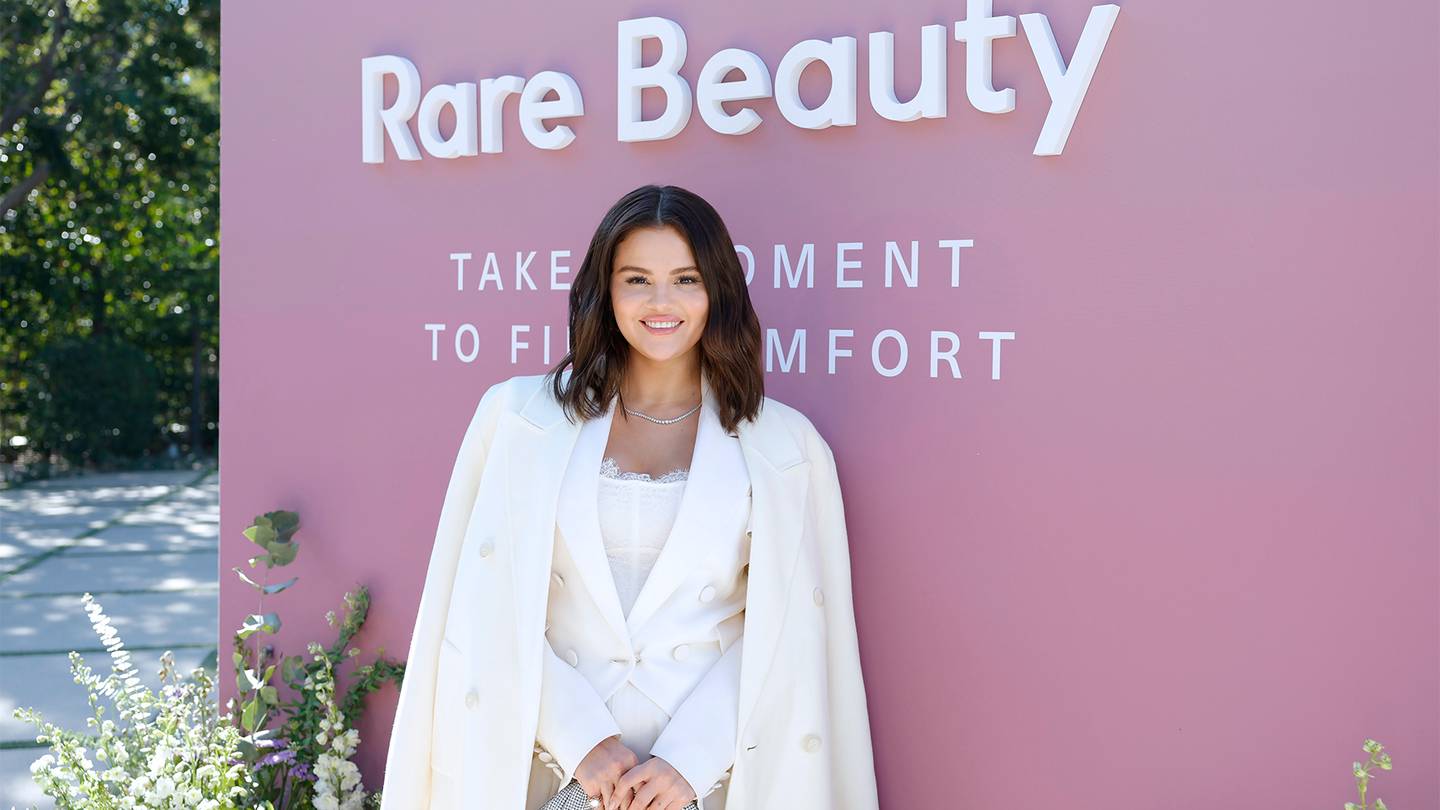
Selena Gomez weighs sale of cosmetics brand valued at $2 billion. Rare Beauty brought on the bankers to field interest from firms looking to invest in or acquire the company. Bankers have met with potential suitors, but Gomez has not.
CVC-backed perfume retailer Douglas raises $967 million IPO but tumbled in debut. The CVC Capital Partners-backed firm sold about 32.7 million new shares and raised about €850 million, while current stockholders sold around 1.5 million existing shares. The company’s shares hit a low of €23.20 a share, compared with the IPO price of €26.
Sephora to withdraw from Korea. The company said it would gradually terminate all its operations, including its app, online store and physical stores. Having launched in 2019, it currently has five stores in Korea, having shut down two stores in the last two years, per local press.
TikTok influencer Dr. Muneeb Shah launches skincare brand. The line, Remedy, is based on his Gen-Z and Millennial audience’s top skincare concerns. Remedy’s selling point is an emphasis on the “skinimalism” trend replacing multi-step routines.
PEOPLE
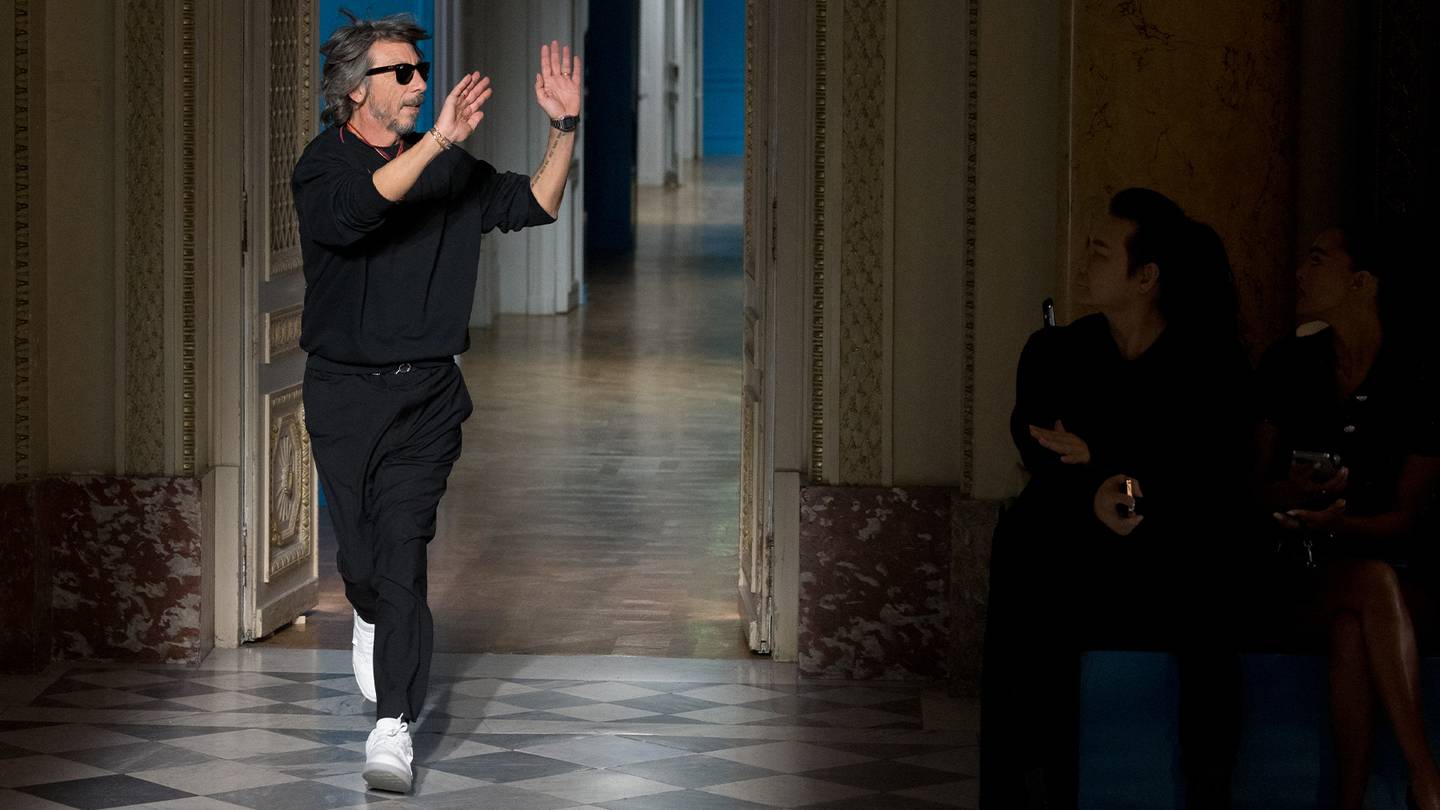
Pierpaolo Piccioli is exiting Valentino. Pierpaolo Piccoli is parting ways with Valentino after eight years as the Roman couture house’s sole creative director, according to a company statement which called the move a “joint decision.”
LVMH’s Stephande Bianchi promoted in top management reshuffle. LVMH’s group managing director Toni Belloni will step down with Stephane Bianchi succeeding him. Bianchi will chair the group’s executive committee, and alongside Bernard Arnault, will take up strategic and operational supervision of the group’s labels.
Dries Van Noten to step down. The designer will step down as creative director of his namesake fashion label following its June menswear show, he announced in a letter to fashion editors Tuesday.
Balmain CEO exits company. Jean-Jacques Guevel is stepping down “to pursue other interests” after four years leading the Parisian fashion house. A successor has not been named.
Jean Paul Gaultier taps Courrèges’ Nicolas Di Felice as guest couturier. The show slated for June will be Di Felice’s first couture outing. The designer previously worked behind-the-scenes under Nicolas Ghesquière at Louis Vuitton and Balenciaga and for Raf Simons at Dior.
Capri denies reports that Michael Kors is planning departure. According to a WWD report citing anonymous sources, top management at Michael Kors has been putting plans in place to prepare for the designer’s exit. “Michael Kors is and will remain the chief creative officer of his namesake company,” John Idol, chairman and chief executive of Capri Holdings, said in a statement.
MEDIA AND TECHNOLOGY
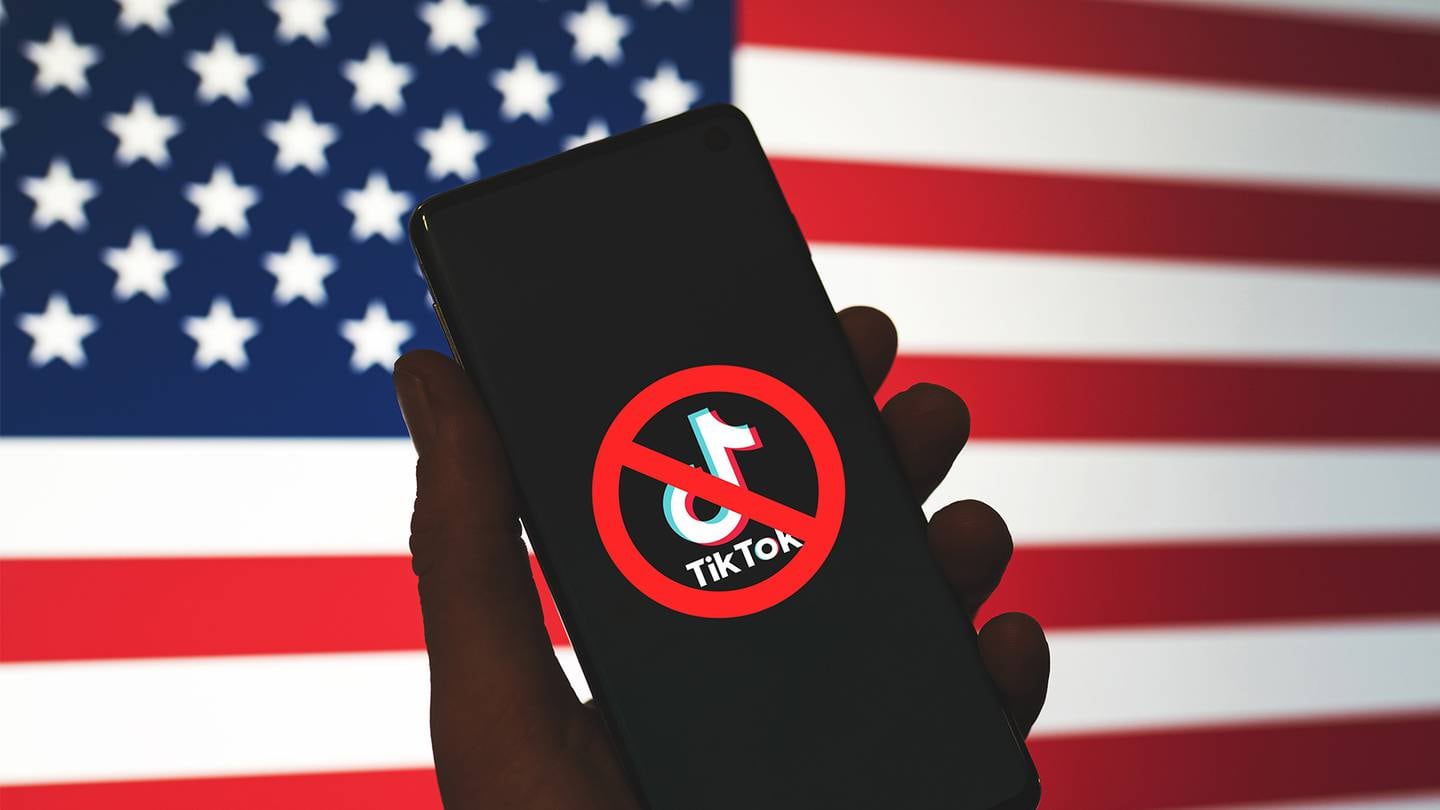
TikTok draws fresh scrutiny from key US Senate Democrats. Senate Commerce Chair Maria Cantwell said she’s considering holding a public hearing on TikTok and social media following a classified briefing. Deputy Attorney General Lisa Monaco and other national security officials have privately supported legislation that would force Chinese parent ByteDance Ltd. to divest itself of the popular video-sharing app.
Compiled by Yola Mzizi.

